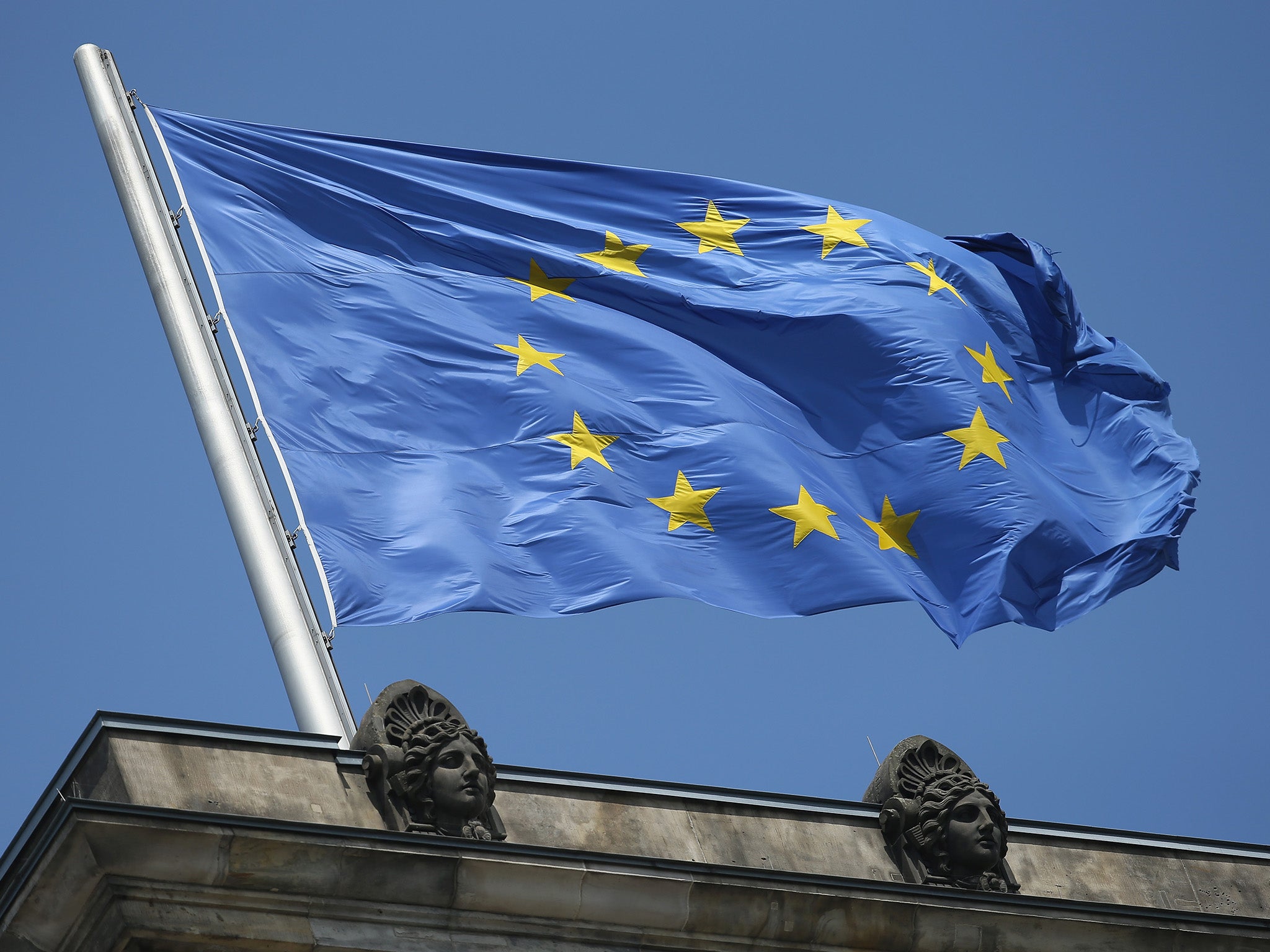EU referendum: Four out of five people say leaving Europe would be a risk to UK, poll shows
ORB found that 82 per cent of the public think that 'Brexit' would pose a risk to the UK

Your support helps us to tell the story
From reproductive rights to climate change to Big Tech, The Independent is on the ground when the story is developing. Whether it's investigating the financials of Elon Musk's pro-Trump PAC or producing our latest documentary, 'The A Word', which shines a light on the American women fighting for reproductive rights, we know how important it is to parse out the facts from the messaging.
At such a critical moment in US history, we need reporters on the ground. Your donation allows us to keep sending journalists to speak to both sides of the story.
The Independent is trusted by Americans across the entire political spectrum. And unlike many other quality news outlets, we choose not to lock Americans out of our reporting and analysis with paywalls. We believe quality journalism should be available to everyone, paid for by those who can afford it.
Your support makes all the difference.Four out of five people believe that it would be a risk for Britain to leave the EU, according to a poll for The Independent.
ORB found that 82 per cent of the public think that “Brexit” would pose a risk to the UK – including 58 per cent who see “some risk” and 23 per cent who see “a great deal of risk”. Only 18 per cent believe there would be “no risk at all.”
The findings suggest that the campaign to keep Britain in the EU could profit by highlighting the dangers of a vote to leave in the referendum David Cameron plans to hold this summer. He intends to spell out the possible threat to Britain’s economic and national security if it left the EU, including its ability to fight terrorism and crime. Supporters of “Brexit” have already dubbed the In campaign “Project Fear” –the label given to the drive to keep Scotland in the UK in the 2014 referendum on independence.
The survey of 2,000 people, conducted on Wednesday and Thursday, found that 52 per cent believe Britain should remain in the EU and 48 per cent want it to leave. These figures are unchanged since last month. Women (54 per cent) are more likely to support continued membership than men (50 per cent).
Similarly, women (86 per cent) are more likely than men (78 per cent) to see quitting as posing a risk. “Effective communication about the risks of Brexit to a male audience may well just about tip this in favour of a remain vote,” said Johnny Heald, managing director of ORB International.
Voters who backed the Conservatives at last year’s general election split 50-50 on whether the UK should stay in the EU club, and so could decide Mr Cameron’s fate. Some 83 per cent of them see a risk in Britain departing, in line with the population as a whole. A majority of Ukip voters (54 per cent) acknowledge some risk in leaving, even though 92 per cent of them want the UK to pull out.
Four weeks before the summit of EU leaders at which Mr Cameron hopes to secure a new deal for Britain, he stepped up his drive to win support in other European capitals for his reform demands.
Talks in Prague with his Czech counterpart, Bohuslav Sobotka, focussed on Britain being granted an “emergency brake” under which EU migration could be halted if pressure on public services became too acute. It is being mooted as an alternative to Mr Cameron’s call for a four-year ban on migrants receiving in-work benefit.
The proposal has run into fierce opposition in eastern European member states, including the Czech Republic, who have condemned it as “discriminatory”. Mr Sobotka said: “It is very important for us that any solution that is adopted on a European level does not discriminate.”
Mr Cameron insisted his four-year demand was still on the table, but said he welcomed alternatives with a similar impact on migration. He added: “I am confident that with the help of European partners and with goodwill we will be able to get there and find mutually satisfactory conclusions.”
The Prime Minister suffered a setback when Lord Howard of Lympne, the former Tory leader, signalled he was likely to support the Brexit campaign. He said Mr Cameron is “not looking very likely” to secure a good enough deal to justify remaining in the EU.
In response, Mr Cameron’s spokeswoman said he was seeking “substantial and significant” and would “really change our relationship and our membership of the EU”.
The Leave campaign won celebrity backing from the actor Sir Michael Caine who told BBC Radio 4: “I sort of feel certain we should come out.”
Join our commenting forum
Join thought-provoking conversations, follow other Independent readers and see their replies
Comments